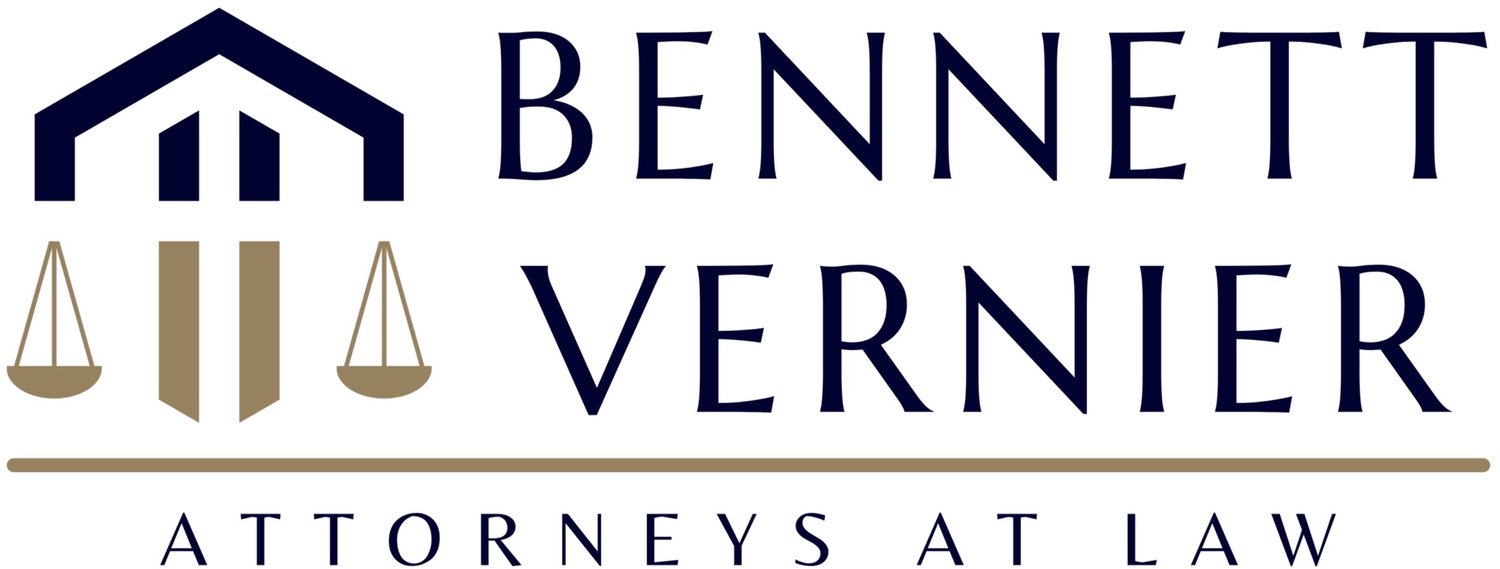Oklahoma City Estate Planning & Probate Attorneys
Protecting Your Legacy, Securing Your Loved Ones' Future
Estate planning is about more than just drafting a will—it’s about ensuring that your hard-earned assets are distributed according to your wishes and that your loved ones are protected. Many people assume they don’t need an estate plan, but in Oklahoma, if you don’t have a legal plan in place, state law will determine who inherits your assets, which may not align with your intentions.
At Bennett Vernier, PLLC, we provide expert legal guidance to help you:
✔ Create a comprehensive estate plan that reflects your wishes.
✔ Minimize probate costs and streamline asset distribution.
✔ Protect your family’s future with wills, trusts, and powers of attorney.
📞 Schedule a free consultation today at (405) 456-0404 and take control of your legacy.
Should I Buy My Will or Trust Online?
Many websites offer cheap wills and trusts, but as with most things in life, you get what you pay for. These generic, one-size-fits-all documents may not comply with Oklahoma laws or fully protect your assets and family.
📌 Key Risks of DIY Estate Planning:
🚫 Failing to meet Oklahoma’s legal requirements.
🚫 Exposing your estate to costly probate battles.
🚫 Leaving out essential provisions that protect your heirs.
💡 The better choice? Work with an experienced estate planning attorney to create a will or trust tailored to your unique needs. Contact us today to discuss your options.
What Is a Last Will and Testament?
A Last Will and Testament is a legal document that dictates who will inherit your assets and who will care for your minor children after your passing.
✔ If you die without a will, Oklahoma’s intestate laws will determine how your estate is distributed.
✔ A will has no legal authority until after death—it does NOT help manage your affairs if you become incapacitated.
✔ A will must go through probate, meaning your estate will be subject to court supervision.
💡 If you have minor children, your will should nominate a guardian to ensure they are cared for by someone you trust. Without this, the court will decide who raises your children.
Why Consider a Trust?
A trust is a legal arrangement that allows you to manage and distribute assets without going through probate. Trusts can be simple or complex, depending on your needs.
Key Benefits of a Trust:
✔ Avoids probate, ensuring a faster, private transfer of assets.
✔ Protects assets from creditors and legal disputes.
✔ Provides tax advantages for both the trust-maker and beneficiaries.
✔ Ensures continuity, even if the trust-maker becomes incapacitated.
💡 A revocable living trust is one of the most common estate planning tools because it allows you to maintain control over your assets during your lifetime while ensuring a smooth transfer after death.
📞 Find out if a trust is right for you—call us today at (405) 456-0404.
What Is Probate & How Does It Work?
Probate is the legal process of administering an estate after death. This includes validating a will, paying debts, and distributing assets.
📌 Challenges of Probate:
❌ Time-consuming – Can take months or even years.
❌ Expensive – Court fees, legal costs, and taxes can deplete an estate.
❌ Public record – Probate filings are accessible to the public.
✔ Avoiding Probate: Proper estate planning, such as setting up a trust or designating beneficiaries, can help bypass probate and protect your family’s privacy.
💡 Need help navigating the probate process? Call (405) 456-0404 for expert guidance.
Responsibilities of a Personal Representative in Probate
The personal representative (executor) of an estate is responsible for:
✔ Filing the will with the court.
✔ Preparing an inventory of assets and obtaining valuations.
✔ Paying the deceased’s debts, taxes, and claims.
✔ Notifying creditors and beneficiaries.
✔ Distributing remaining assets according to the will or state law.
📌 Reminder for Beneficiaries: You cannot claim assets until all debts and taxes are settled. If you are an executor and need help managing probate, our attorneys can guide you through the process.
📞 Call (405) 456-0404 today for probate assistance.
What Are Powers of Attorney?
A Power of Attorney (POA) is a legal document that allows someone else to make financial or healthcare decisions on your behalf.
✔ General POA – Covers a wide range of financial and legal decisions.
✔ Durable POA – Remains in effect even if you become incapacitated.
✔ Limited POA – Grants specific authority for a limited time or purpose.
💡 Banks and financial institutions may hesitate to honor old POAs. It’s crucial to regularly update your POA to ensure it remains valid.
Advance Directives & HIPAA Waivers
An Advance Directive ensures that your medical preferences are followed if you become unable to communicate.
✔ Specify life-sustaining treatments you do or do not want.
✔ Designate a healthcare proxy to make medical decisions on your behalf.
✔ Ensure that doctors honor your end-of-life choices.
A HIPAA waiver allows designated individuals to access your medical records—without it, even your closest family members may be denied vital health information.
💡 Make sure your healthcare wishes are legally documented. Call (405) 456-0404 for expert estate planning assistance.
Protect Your Legacy with Expert Legal Guidance
Estate planning is one of the most important steps you can take to secure your family’s future. Whether you need a will, trust, power of attorney, or probate assistance, our team is here to help.
📞 Call Bennett Vernier, PLLC at (405) 456-0404 today to schedule a free consultation.
💼 Don’t leave your family’s future to chance—contact us now to create a solid estate plan that protects your loved ones.

